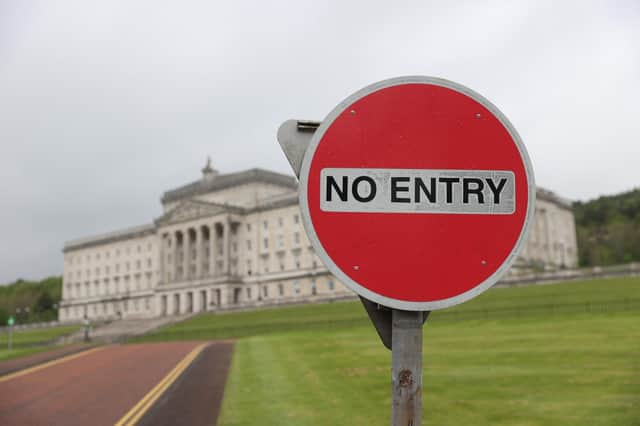Esmond Birnie: It is far from clear whether an opt-out law in Northern Ireland would actually promote greater availability of organs


Regarding the organ donation ‘opt out’ law proposal, were it not such a serious a matter, I’d be tempted to say that when we see all the Northern Ireland parties (and the NIO and large sections of the NI media) all assuming something must be a “good thing” then we should start to carefully check things out.
The motivation is spot-on. We should all feel the greatest sympathy for those who suffer given a lack of donated organs.
Advertisement
Hide AdAdvertisement
Hide AdProbably the best thing each of us as individuals can do is make as clear as possible our own preference that if the circumstances were such as to make this possible, our own organs can be used.


But good intentions alone do not make good public policy. The evidence that an opt-out law would actually ‘work’, in terms of promoting greater availability of organs, is far from clear cut. Given that many countries have wrestled with this issue we now have quite a lot of diversity in law and practice. This should allow us to come to an evidence-based conclusion.
One academic paper concluded that the evidence that opt-out laws by themselves would promote an upsurge in donations was at best weak. It was much more likely that a wider range of policies, working together, would promote the desired end, eg public information campaigns, better resourcing of transplant services. (See, H.R. Etheredge ‘Assessing Global Organ Donation Policies: Opt-in versus Opt-out’, online at ncbi.nlm.nih.gov)
The devolved Scottish government has been strong advocate for reforming the law towards opt-out but even in Scotland the medical professionals have taken an ambivalent position. In July 2018 the NHS Scotland Directorate (‘Opt out Organ Donation: A Rapid Evidence Review’) noted that across the EU there was some evidence that those countries which had legislated for opt out did have higher organ donation rates but it also concluded that this result could well be attributable to other factors.
Advertisement
Hide AdAdvertisement
Hide AdIn fact, during the last dozen or so years a range of articles in the medical journal Transplantation and the British Medical Journal came to a quite sceptical conclusion about the effectiveness of opt-outs and presumed consent.
Another study lamented that policy making in this area, especially across the four UK nations, had often relied on a rather weak evidence base: NJ Williams, L O’Donovan and S. Wilkinson 2022, ‘Presumed Dissent? Opt-out Organ Donation and the Exclusion of Organs and Tissues’, Medical Law Review, 30, 2, pp. 261-98.
In short, the current position in NI is tragic at a number of levels. This issue has become a political football much to the frustration of the families most closely concerned. But even if the law is changed in favour of opt-outs, the UK and international evidence suggests that by itself the proposed law change will bring little real improvement.
Hopes will have been raised in a futile way- a terrible outcome. And all of the above is to consider only the expediency of any law change (‘would it work’) without getting into the huge moral issue: is it worthwhile replacing informed consent with presumed consent, the latter being no consent at all?”.
Dr Esmond Birnie, Senior Economist Ulster University